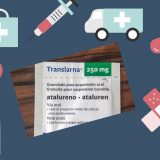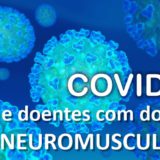Efeito do óleo de peixe em camundongos com distrofia muscular
Brasil – quatorze camundongos foram tratados por 14 dias por via oral com óleo de peixe. Os animais tratados apresentaram menor necrose, menor inflamação, menor CK e redução de citocinas inflamatórias.
O resumo em inglês pode ser lido abaixo:
(Clinical Nutrition, 2012) Effects of fish oil containing eicosapentaenoic acid and docosahexaenoic acid on dystrophic mdx mice.
Adriana Fagagnolo Mauricio, Elaine Minatel, Humberto Santo Neto, Maria Julia Marques – Brazil
Abstract
Background and aims. In Duchenne muscular dystrophy (DMD) and in the mdx mouse model of DMD, the lack of dystrophin leads to muscle degeneration and inflammation contributes to progression of the disease. In this study, we evaluated the effects of commercially available fish oil containing EPA and docosahexaenoic acid (DHA) on mdx.
Methods. Mdx mice (14 days old) were treated with fish oil (FDC Vitamins; 0.002 g EPA and 0.001 g DHA) for 16 days by gavage. Control mdx mice received mineral oil (Nujol). Grip strength measurement was used for functional evaluation. The sternomastoid, diaphragm and biceps brachii muscles were removed and processed for histopathology and Western blot analysis.
Results. Fish oil decreased creatine kinase and myonecrosis. In all muscles studied, the inflammatory area was significantly reduced after treatment (18.0 ± 3.0% inflammatory area in untreated mdx mice vs 4.0 ± 1% in treated mdx mice). Fish oil protected against the loss of muscle strength. Fish oil significantly reduced the levels of TNF-α and the levels of 4-HNE-protein adducts (30 to 34% reduction for both) in all muscles studied.
Conclusions. Commercially available fish oil may be potentially useful to ameliorate dystrophic progression of skeletal muscles, deserving further clinical trials in DMD patients.



